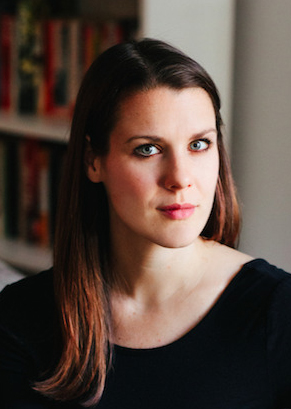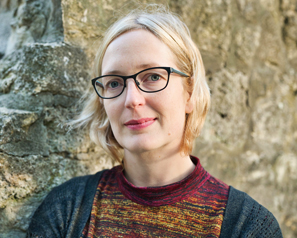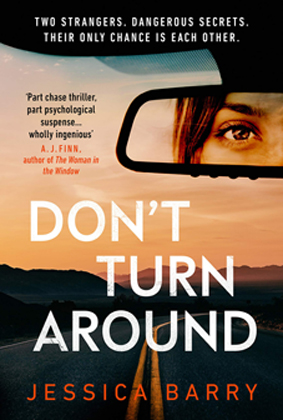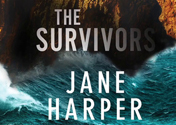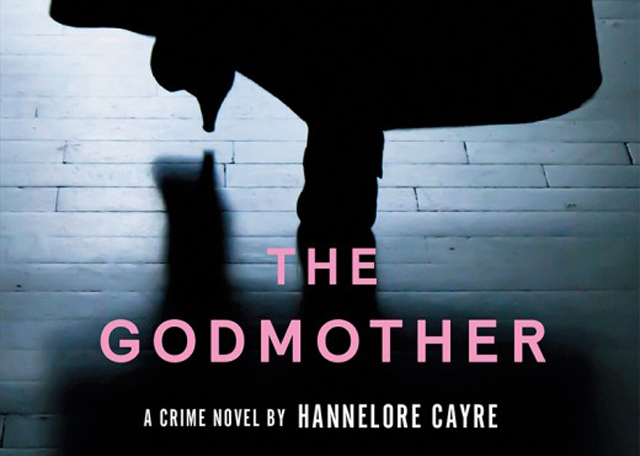Crimeculture’s first three reviews of this year are of powerfully feminist crime novels, by Caitlin Mullen, Inga Vesper and Jessica Barry. All three give readers gripping, suspenseful narratives centring on the bonds that form between women fighting to survive.
Caitlin Mullen, Please See Us (2020)
Review by Lee Horsley
Mullen’s protagonists, Lily and Clara, are very unlike one another, but both struggling to build new lives for themselves. They are brought together under the extreme pressure of violent events, desperate to work out what has been happening and terrified that they may themselves become victims. Lily reflects, “I was so tired of being afraid. And yet, it seemed that was all this summer was: learning all of the ways that dread could creep into my days.”
As readers of Caitlin Mullen’s Please See Us, we are drawn into the lives of women who are unseen – consigned to the impoverished underside of a decaying city, vulnerable to casual abuse and unspeakable violence. Mullen’s lyrical, suspenseful psychological thriller compels our attention, telling their stories with both precision and compassion.
For the reader, the sense of danger that haunts the two women is known to be a grim reality. Much of Mullen’s narrative alternates between the perspectives of Clara and Lily, but we also hear the voices of “the Janes”, dead girls whose as yet undiscovered bodies have been posed by their killer in the marshland behind a seedy motel:
“They sense the shift in the wind during the final stretches of July…Then, the ocean will brew storms, hurricanes that surge their way up the coast. Wind that tears at the grass, tides that could scatter them, wash away what’s left. They think this means they’re running out of time. Time to tell their stories, time to be heard. They plead again for someone to see before it’s too late.”
Clara, a teenage psychic who gives tarot readings on the boardwalk, has real and disturbing visions – glimpses of the deaths that haunt Atlantic City, fleeting images of a girl called Julie and of the Jane Does who lie waiting for someone to find them. She feels transported outside of herself, to the mud and grass of the marsh, where she sees the bruised arms and legs of the women’s bodies, stray sparkles of jewelry, and the flies that swarm everywhere. She thinks about leaving Atlantic City, but feels compelled to stay until she has “figured out what these visions meant…It seemed wrong, unfair to all of the women, to take off like they didn’t matter. Like I wasn’t carrying around pieces of their lives.”
The backdrop of Atlantic City is powerfully created, giving us an affecting sense of this fading, crumbling, once glamorous place. The image of the city is partly conveyed through the paintings of an unknown artist whose work Lily discovers. His art captures the past of the city in the eighties and nineties – “the big hair, the bulky costume jewelry, bright as candy, the saturated colors” – and also the city as it has become, “the entropy, the slow creep of decay,” a place plagued by “corruption, addiction, recession”. We ultimately also enter the perspective of the artist, who knows he can’t save the women, but who wants to “show everyone just how cruel, how ugly and wrong this city has become.”
Please See Us is an extraordinary debut novel. Caitlin Mullen has shown herself able to create a literary thriller that contains both a completely absorbing crime narrative and a beautifully nuanced reflection on the “ruined dream” of a city in decline. We’re very much looking forward to her future novels.
Inga Vesper, The Long Long Afternoon (2021)
Review by Lee Horsley
Inga Vesper’s The Long Long Afternoon is a beautifully atmospheric and wholly absorbing crime novel, set in 1950s Santa Monica. Vesper’s title conjures up the placid, unbroken calm of a Californian idyll – a sun-drenched suburban life, where affluent housewives display their domestic accomplishments, their blue pools, their May-green lawns. But – as any reader of Chandler will suspect – we will inevitably discover that underneath this claustrophobic, carefully constructed surface there are hidden lies, transgressions and bloodstains on the kitchen floor:
“The sun beams through the curtains and paints the ghosts of daisies on the tiles. Blood on them, too, smeared and sticky, dreadful as the devil’s tongue.”
Joyce Haney, suburban wife and mother of two, has vanished from her Sunnylakes home, leaving her little girls behind. Has she been abducted? Or murdered? The blood in the kitchen is discovered by the Haney’s black maid, Ruby Wright, who travels daily to the suburbs from the other side of Santa Monica, hoping to earn enough to pay her tuition at teacher training college. Ruby’s acute intelligence goes unobserved in Sunnylakes, because, to her employers, she is invisible – merely the hired help. But when Mick Blanke, the detective investigating Mrs Haney’s disappearance, asks whether Ruby can give him any information, he finds that her sharp perceptions lead him towards an understanding of what has happened.
Struggling to make headway with his interrogation of suburban wives, Blanke feels like he’s “surrounded by sharks in starched blouses”. Ruby explains to him,
“’The Sunnylakes folk, they live in dreamland. And they don’t want anyone popping that bubble. They . . . play-pretend. You must have noticed.’ ‘Yeah . . .’ He frowns. ‘Kinda.’ ‘So you gotta stop expecting them to help you and start digging at the deep, dark secrets that they’ve got.”
The “the dark stuff, that stays hidden” is only gradually brought to the surface in a narrative that moves back and forth in time, giving us the perspectives of Ruby, Joyce and Mick. Both Joyce and Ruby have been thwarted in their lives by misogynistic assumptions and prejudice; both have longed to do things outside of conventional expectations. Before Joyce goes missing, they reach across the barriers to find hidden affinities. As they confide in one another, Joyce suddenly gives Ruby a hug, and Ruby reflects that she
“…had never been hugged by a white woman, but she didn’t even have time to be surprised, because Joyce told her a secret so big it bonded them forever…Joyce’s and her life were so far apart the gap could never be bridged. But they had stuff in common, too. Things they both wanted and couldn’t get. Dreams that kept going unfulfilled.”
The Long Long Afternoon is an engrossing mystery story, but also a penetrating exploration of both racial barriers and the position of women in a society that traps and stifles them. Before her disappearance, Joyce thinks about the unexpected bond she has formed with Ruby:
“We have some laughs together, her and I, and we’ve cried together, too, over our mothers who were killed by men who saw them as trash. I told Ruby things I never told anyone. That she does not have to forgive, that she should be angry over the injustice of it all. That she is allowed to hate.”
Inga Vesper’s remarkable debut novel is thoughtful, wonderfully crafted and highly recommended.
Jessica Barry, Don’t Turn Around (2021)
Review by Lee Horsley
“Wasn’t living under the constant threat of danger just a part of being a woman in this world?”
Jessica Barry’s Don’t Turn Around is a gripping, swiftly paced female road novel. Her evocative prose propels us into the lives of two strong, determined women, thrown together on a nightmarish journey, facing dangers that neither of them anticipated.
One of the women, Cait Monaghan, is helping out at an Austin, Texas, organisation called Sisters of Mercy, set up to aid women in crisis. Having been eking out a living as a bartender and occasional journalist, Cait has crises of her own to contend with, shadowing and complicating her commitment to helping others. She takes on the task of secretly driving Rebecca McRae, wife of an up-and-coming politician, across a desolate part of northern Texas and into New Mexico, to a clinic in Albuquerque. The two women have never met before and are from very different worlds:
“Cait looked at the woman next to her wiping tears from her eyes and wondered, for the first time, if maybe they would have been friends had the circumstances been different. If maybe she liked this woman after all. She brushed away the thought. It didn’t matter if she liked Rebecca or not. She wasn’t here to make friends.”
Travelling in a beat-up old jeep, the two are in danger almost from the outset, under pressure from an unknown assailant and terrified as they are blinded by headlights in their rear view mirror, a truck charging towards them and trying to force them off the road. The action of Don’t Turn Around only occasionally pauses for reflection. But the tightly wound plot at every point brings vividly to the fore the plight of women in a world of male aggression. The glimpses of the mental world of their pursuer leave us in no doubt about the deep misogyny driving the men who have made their lives hellishly frightening:
”Now that he had been released, he wanted to revel in his freedom. He wanted to look into her eyes and see his own power reflected there. To see that he was a god and that she was nothing in the face of him. This is your purpose on this earth, and you are fulfilling it.”
Beyond the deranged focus of a psychopathic mind, there is a wider world that seems increasingly determined to treat women themselves as the transgressors. Rebecca, the politician’s wife, reflects that “she no longer recognized the waters they were swimming in. The tides turned so quickly these days, sweeping everything familiar out to sea. Now she was out there, alone and drowning.” The bond the two women tentatively form under the extreme pressure of this alien, hostile world is all that gives them hope as they struggle to stay alive: “So, no, she wasn’t alone. She had a woman she’d met only the day before, but who she knew now would stay by her side…That’s what we women are here for, right? To save each other’s lives.”
Don’t Turn Around was written pseudonymously by an American writer who has lived and worked in London for over fifteen years. Her first crime novel, Look for Me, originally published as Freefall (2019), similarly demonstrated her ability to combine psychological tension with riveting action. Crimeculture looks forward to reviewing future high-octane feminist thrillers from Jessica Barry.

Crimeculture’s Lockdown Favourites
Throughout 2020, Crimeculture reviewed a selection of the outstanding crime novels we enjoyed during the lockdown.
Jane Harper, The Survivors, 2020
Jane Harper’s The Survivors is an engrossing, suspenseful novel, with strong characters and an intensely realised landscape. It takes place in the tiny, isolated Tasmanian town of Evelyn Bay, sparsely populated except during the tourist season, when holidaymakers outnumber the town’s inhabitants.
Read our review of The Survivors
Agnes Ravatn, The Seven Doors, 2020
Agnes Ravatn’s psychological thriller, The Seven Doors, is a haunting and disturbing exploration of guilt and deception – and of an obstinate determination to expose hidden truths. Ravatn’s subtle, mesmerizing prose draws us into a complex skein of family secrets.
Read our review of The Seven Doors…
Hannelore Cayre, The Godmother (2019)
Hannelore Cayre’s The Godmother (published as La Daronne in France) was one of the unexpected delights of this year’s reading. It began to receive widespread recognition when Cayre – a criminal lawyer as well as a screenwriter and director – won both the European Crime Fiction Prizeand the Grand Prix de Littérature Policière, France’s most prestigious award for crime fiction. Read our review of The Godmother…
Read reviews of more of our Lockdown Favourites:
Camilla Läckberg, The Golden Cage
Louise Candlish, The Other Passenger
Dreda Say Mitchell, Spare Room
Thomas Mullen, Midnight Atlanta
Rone Tempest, The Last Western
William Boyle, A Friend is a Gift You Give Yourself
Michael Farris Smith, Blackwood


